A very successful meeting with 140 delegates from was held in May 2016 at Charlton Down Village Hall, near Dorchester to discuss and explore the application of rewilding concepts to Dorset co-hosted by Bournemouth University and the Dorset Wildlife Trust.
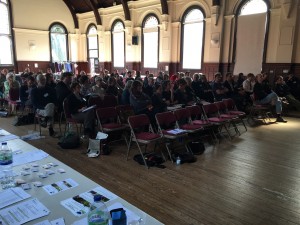
In recent years, rewilding has become a major theme in conservation, stimulated by publications such as George Monbiot’s Feral and the launch of rewilding organisations both in the UK and at the European scale. While a number of rewilding initiatives have been launched in the UK, most of these are predominantly located in upland areas in the north and west of the country. Elsewhere in Europe, many rewilding initiatives are seeking to encourage ecological recovery on agricultural land that has been abandoned. This raises the question of whether rewilding concepts are applicable to intensive agricultural landscapes such as Dorset, and if so, how they might best be implemented.
We were delighted to be able to welcome a number of speakers who presented at the meeting, including leading researchers with expertise in rewilding, and practitioners with experience in implementing rewilding projects. The meeting also involved representatives from a number of conservation organisations in Dorset.
Speakers included:
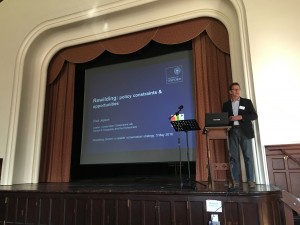
Dr Paul Jepson, Oxford University – “Rewilding policy: risk and opportunities”
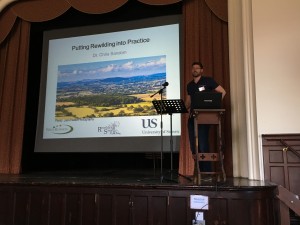
Dr Christopher Sandom, University of Sussex – “Putting rewilding into practice”
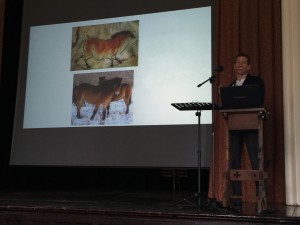
Dr Matthew Heard, Centre for Ecology and Hydrology – “Ecological impacts of rewilding using extensive grazing: the case of Knepp Estate”
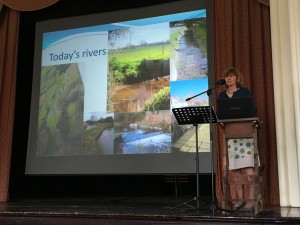
Fiona Bowles, Poole Harbour Catchment Initiative – “Is there space for Dorset Rivers to run wild?”
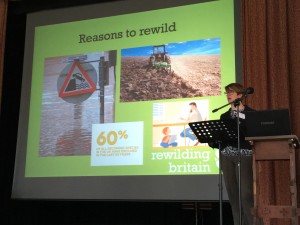
Helen Meech, Rewilding Britain – “Why Rewild Britain?”
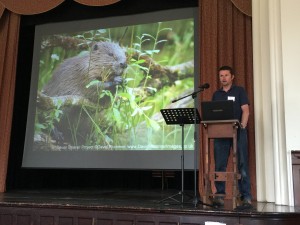
Professor Richard Brazier, Exeter University – “Quantifying the ecohydrological impacts of reintroducing Eurasian Beaver to intensively managed, lowland agricultural landscapes”
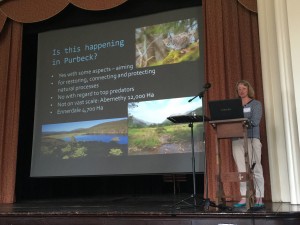
Alison Turnock, Dorset AONB – “The Wild Purbeck Nature Improvement Area – towards bigger, better, more, joined”
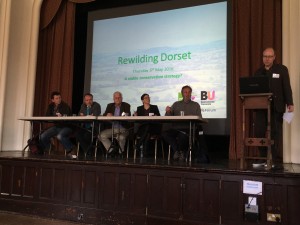
The day was rounded off with a lively and positive discussion with Jonathan Spencer (Forestry Commission), Ian Alexander (Natural England), Mark Robbins (RSPB), David Brown (National Trust), Imogen Davenport (Dorset Wildlife Trust) and chaired by Prof. James Bullock (Centre for Ecology & Hydrology).
This meeting was held as part of the Modelling Natural Capital in Dorset Project (funded under the Higher Education Innovation Funding (HEIF) initiative). Any questions can be addressed to Research Assistant Arjan Gosal.
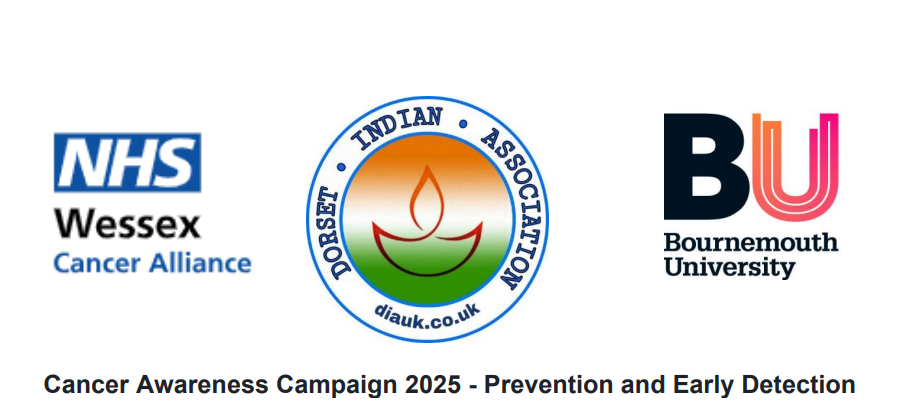 The Dorset Indian Association in collaboration with the NHS Wessex Cancer Alliance and Bournemouth University ran a very successful Cancer Awareness Event at Bournemouth University today Saturday, 25th January 2025. At the event a range of experts from University Hospitals Dorset NHS Foundation Trust spoke about the risks and prevention and early detection of various cancers, including bowel, lung, breast, skin, head and neck and other cancers. The presentations also included early detection and aspects of mental health in cancer patients. BU’s Professor Steve Ersser, for example, spoke about a currently on-going interdisciplinary health education project in the cancer field.
The Dorset Indian Association in collaboration with the NHS Wessex Cancer Alliance and Bournemouth University ran a very successful Cancer Awareness Event at Bournemouth University today Saturday, 25th January 2025. At the event a range of experts from University Hospitals Dorset NHS Foundation Trust spoke about the risks and prevention and early detection of various cancers, including bowel, lung, breast, skin, head and neck and other cancers. The presentations also included early detection and aspects of mental health in cancer patients. BU’s Professor Steve Ersser, for example, spoke about a currently on-going interdisciplinary health education project in the cancer field.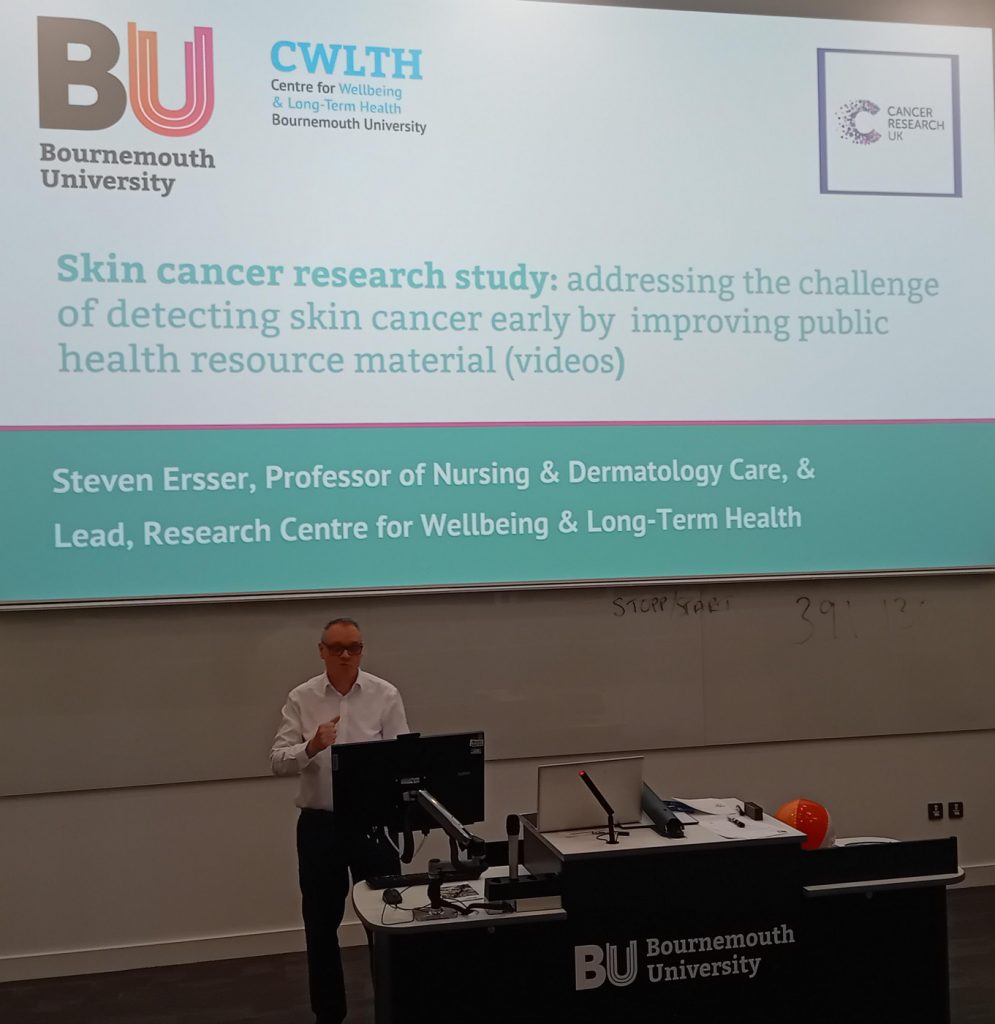
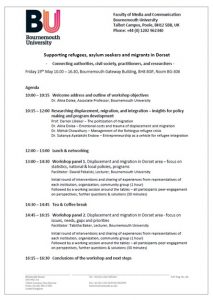

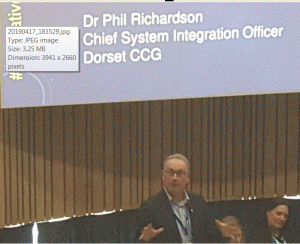

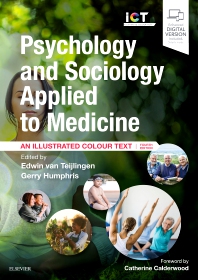
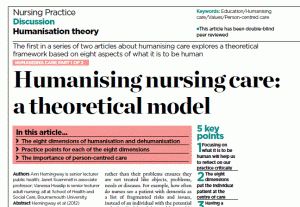










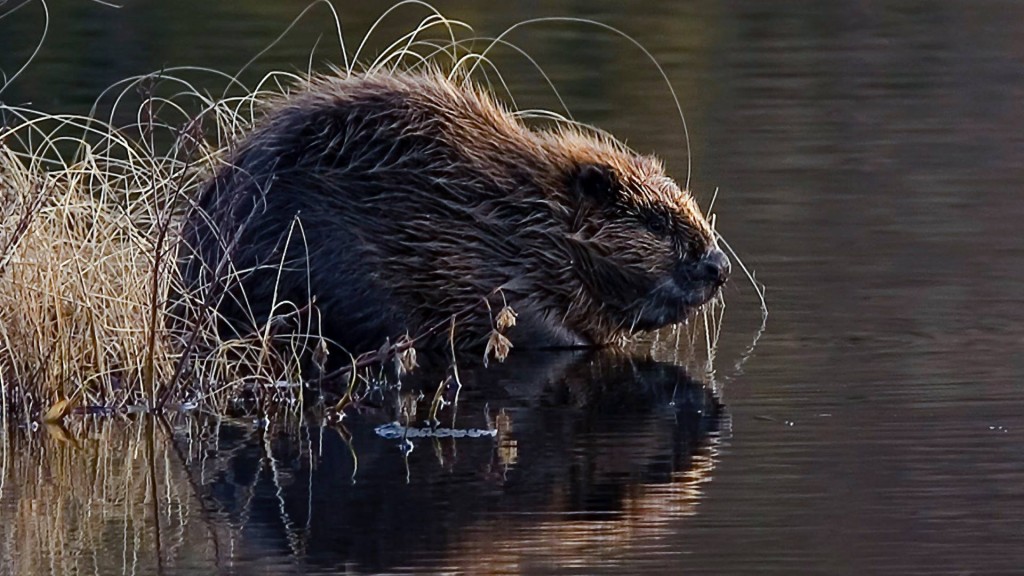

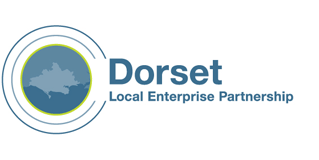











 Dr. Ashraf cited on ‘Modest Fashion’ in The Guardian
Dr. Ashraf cited on ‘Modest Fashion’ in The Guardian NIHR-funded research launches website
NIHR-funded research launches website Academics write for newspaper in Nepal
Academics write for newspaper in Nepal MSCA Postdoctoral Fellowships 2025 Call
MSCA Postdoctoral Fellowships 2025 Call ERC Advanced Grant 2025 Webinar
ERC Advanced Grant 2025 Webinar Horizon Europe Work Programme 2025 Published
Horizon Europe Work Programme 2025 Published Horizon Europe 2025 Work Programme pre-Published
Horizon Europe 2025 Work Programme pre-Published Update on UKRO services
Update on UKRO services European research project exploring use of ‘virtual twins’ to better manage metabolic associated fatty liver disease
European research project exploring use of ‘virtual twins’ to better manage metabolic associated fatty liver disease